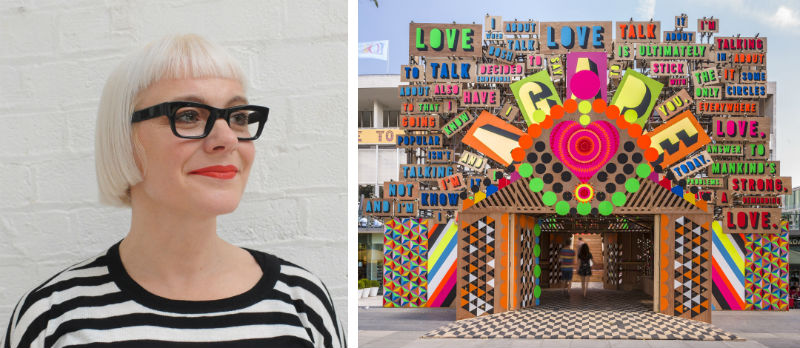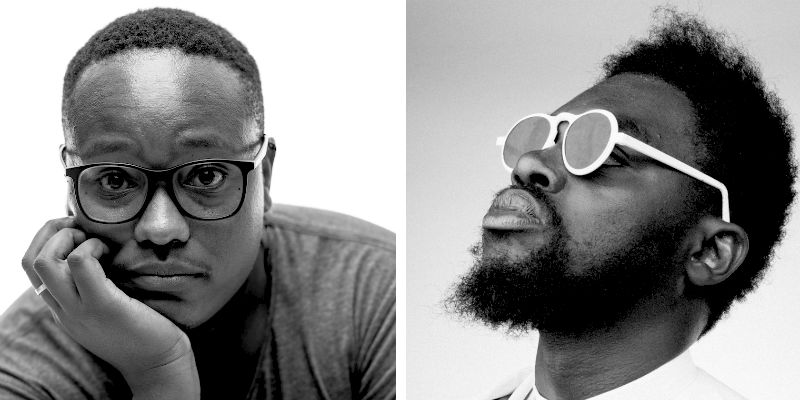Pandemic Ponderings: Some stay-at-home thoughts during COVID-19

I have learned some things about myself during this whole COVID-19, stay-at-home time. Time will only tell what I will do with this new information in the aftertimes -- a looming question we all share.
1. I am the type of person who will totally get dressed from the waist up for a Zoom meeting, and wear pajamas from the waist down.
This was a surprise. You see, in my mind, I have what I describe as the Head-Hands Theorum. Among your co-workers, I believe that it is best practice to pretend that their bodies consist of their heads and their hands. You know, the work parts. This is not to say you shouldn’t have compassion for the things that are going on in their lives. This is to say that many, many people would have found/caused less trouble if they were subscribing to the Head-Hands Theorum. I thought that one would need to have on real pants (or other downstairs clothing) to properly observe Head-Hands. But, alas, now I don’t know who I am anymore.
2. I am angered every time I see one of those “check on your extroverts” tweets.
Keep Talking: Valerie Jarrett, former senior advisor to President Obama, expressed optimism at The Michigan Theater

If I had been paying as much attention to national politics in 2009 as I do now, maybe I would have been more familiar with Valerie Jarrett, senior advisor to President Barack Obama. But her visit to the Michigan Theater on Monday, April 22, gave me the chance to learn more about her story.
I am so glad that I took that chance.
“You never know what can happen with a Michigan Law degree.” --Broderick Johnson
As part of her book took for Finding My Voice: My Journey to the West Wing and the Path Forward, Jarrett was in conversation with Broderick Johnson, an adjunct professor at the University of Michigan Law School. Maybe Johnson and Jarrett appeared to be so comfortable on stage because of their work together as advisors in the Obama administration. Maybe it was because their friendship was palpable. Maybe it was because they’re both University of Michigan Law School alumni and this felt like a homecoming of sorts. In any case, it was a pleasure to behold.
Influence & Appropriation: Carrie Mae Weems at the Michigan Theater

“Sometimes we remodel because we’ve been left out.” --Carrie Mae Weems
I guess I would call myself superstitious. At least that’s how I think about it in those moments when I feel like the universe is pushing me in one direction or another.
I went to see Carrie Mae Weems speak on February 14 as a part of the Penny W. Stamps Distinguished Speaker Series. This was my second time in the Michigan Theater in the space of one week and for someone who sees herself as a person of somewhat nerdily pedestrian interests, I find myself off-kilter when I frequent what I think of as a higher-brow spot. I’m more Netflix than Michigan Theater.
Weems, though, is a name that I have come to know through encountering her work here and there -- and then having an I-have-to-know-more-about-this-artist moment, finding again, I am looking at Weems’ work.
All the World's a Stage: Madeleine Albright at The Michigan Theater

Madeleine Albright is the former secretary of state I’d most love to have a drink with if given the chance. I learned this after seeing her speak about her book Fascism: A Warning at the Michigan Theater on February 2. Heck, I’d love to have a drink within eavesdropping distance from Secretary Albright.
“I’m an optimist who worries a lot.” --Secretary Madeleine Albright
I almost didn’t go. I was a grump that evening. It was cold, and I didn’t want to go outside and I had a series of other minor complaints competing for space in my head. But it feels very weird to skip a talk on fascism in order to wallow in a personal pool of whininess.
The theater took extra care with security that evening so for those of us at the back of the line, closer to Division St. than the Michigan Theater, it took a while to get out of the cold. By the time I made it into the theater, Secretary Albright was already into her conversation with University of Michigan professor Juan Cole.
I sat down just in time to hear Albright argue that fascist leaders capitalize on fear, use the media, don’t respect institutions, and are full of simple solutions for issues that actually require complex approaches and attention to nuance. Punctuated by bursts of applause, she continued, stating that according to her definition, North Korea’s Kim Jong-Un is currently the only leader who fits that description. However, many others have certain fascist tendencies.
Magical & Unwieldy: Aimee Bender and Philip Metres' prose & poems at UMMA

Aimee Bender holds a special place in my heart.
Several years ago, I found myself thinking about Bender's work, a story of hers that I remembered. I took to the internet, looking for the name of the story; instead, I found someone’s dating profile, someone who also adored Bender’s writing.
I was sucked in, reading every detail.
In a romantic comedy, this would be the moment I decided to find this girl and make her love me. But I don’t live in a romantic comedy, so I thought, “I should be dating where this girl is dating.”
I followed that girl.
With this in mind, when I learned Aimee Bender would be speaking at UMMA as a part of the Zell Visiting Writers Series alongside poet Philip Metres on November 15, I knew that I, again, would follow that girl.
Cider Mill Marathon: Spending a day at Washtenaw County apple and pumpkin farms

I was in Houghton Lake a few weeks ago with my guy when I turned to him and said, “We should do an apple cider crawl.” And then I trailed off.
I’m used to taking on weird projects alone or dragging along my son who depends on me for food and shelter and has little leverage to say no. I don’t usually involve other adults in my shenanigans. I wasn’t shut down immediately, so I continued, “We could visit the cider mills in Washtenaw County.”
He responded, “That would be more like a marathon.”
The following weekend, we decided to embrace fall by chasing apple cider.
When you put two middle managers together, there is little that unfolds without a plan, so we identified our targets: Dexter Cider Mill; Wiard’s Orchard, Cider Mill, and Pumpkin Farm; Wasem Fruit Farm; Jenny’s Farm Stand and Cider Mill; and Alber Orchard and Cider Mill. We wanted to end our trek close to where we’d land for the evening -- in this case, Ypsilanti -- so we plotted out our route in advance. We wanted our travels orderly.
Friday afternoon we picked my son up from school, planning to hit the road from there. He takes one look at us, “Did you plan that?” He’s looking at our clothes. Realizing that he is the only one not wearing a plaid shirt. He teases us, “Can we stop home so that I can change?” We don’t stop home. We head straight to I-94.
Her Story Is History: Brenda Travis, "Mississippi’s Exiled Daughter"

Brenda Travis surprised me.
When she came to AADL on September 27 to discuss her book Mississippi’s Exiled Daughter with her co-author, John Obee, I hadn’t expected her to burst into song. But that’s exactly what she did, singing parts of "Ella’s Song," a tune written in honor of civil and human rights leader Ella Baker. The audience joined in, singing with her. Her talk was not to be a passive listening experience.
“Until the killing of black men, black mothers’ sons,
is as important as the killing of white men, white mothers’ sons ...
We who believe in freedom cannot rest until it comes”
--lyrics from "Ella’s Song"
Travis then explained that one of the reasons that she’s still on the civil rights journey is that she still believes in freedom. “There is still a place called hope," she said, "and we have to make hope our homes. We have to continue this struggle and fight until we can get it right. ... To the young people, I’m hoping tonight that I can instill or wake up something within you to want to carry on this battle, to carry on this fight, because if you don’t we’re going to be lost -- not just a nation but a lost world.”
The Art of Eating (& Living) Well: Cookbook author Julia Turshen & Chef Kate Williams at Literati

“For Grace, whom I fell in love with then and do again and again …” --Julia Turshen’s dedication in her newest cookbook, "Now & Again"
Had food writer/home chef Julia Turshen and creative-community blogger Grace Bonney never fallen in love, I may not have been introduced to the cookbook author’s work. I had loosely followed Bonney’s work at Design*Sponge for years. While I’m not in the habit of following the personal milestones of strangers, the moment I found out Bonney was married to Turshen, I thought, “Well, she’s gotta be cool,” and promptly followed her on Instagram. I’ve been intrigued ever since.
On Monday, September 24, Turshen visited Literati to talk about her latest cookbook, Now & Again: Go-To Recipes Inspired Menus + Endless Ideas for Reinventing Leftovers. She was in conversation with chef Kate Williams from Lady of the House restaurant in Detroit and journalist Ashley Woods.
After the audience settled in the space, reinitiating us to fall time in Michigan as we figured out where best to lay our umbrellas, Woods began the talk by asking Turshen and Williams how food and community became entwined for each them.
Morag Myerscough creates welcoming worlds that make us reconsider our own

A sucker for colors, I was persuaded solely by the image on the Penny Stamps Speaker Series calendar to see Morag Myerscough speak at the Michigan Theater on September 20 on the theme of “belonging."
Myerscough is a visual artist in London who "explores the theme of 'belonging' in her work, using it to transform public spaces by creating welcoming, engaging experiences for everyone." The Stamps website photo of Myerscough’s structure Temple of Agape, built in partnership with Luke Morgan for London's 2014 Festival of Love, is covered with vibrant hues, visually busy interacting shapes, and positive words that combine for a psychedelic carnival vibe.
At the Michigan, Myerscough took the stage wearing all black and white. Her shirt reminded me of Picasso’s stripes. Her jumpsuit made me wish I looked better in them. Her sheer, long, flowing top layer completed the look. And then there was a surprise, a pop of color: bright Chuck Taylor sneakers.
“Morag’s visual vocabulary is inclusive by nature.” --Elaine Sims
From the Ancient to the Future: Osborne Macharia and Blinky Bill on Afrofuturism

I love the energy of the Penny Stamps Distinguished Speaker Series, where one can go to the Michigan Theater, join a multi-aged crowd, then sit back and hear the perspective of a creator who has been selected to create a dynamic learning experience for the audience members.
But I hate that idea of Afrofuturism confounds me.
I once had a friend who was into Afrofuturism and I could never quite understand what he was talking about. I’ve been to some Afrofuturism-themed exhibits, I’ve listened to a speaker or two, and I’ve seen a movie about it. I tried to get into it but remained confounded.
Kenyan photographer Osborne Macharia stood on the stage of the Michigan Theater on September 13 and said he hoped the audience would have a better understanding of the Afrofuturism concept by the end of the evening. Mancharia’s website describes Afrofuturism as “an artistic repurpose of the post-colonial African narrative through integrating historical elements, present culture and future aspirations of people of colo[u]r by using narrative, fantasy, and fiction to highlight African identity.”
At the Michigan Theater, I felt the same as I once did as a math student before my algebra breakthrough: I’d give it a try but didn’t feel confident that I would leave the session with any grand revelations.
But I came with an open mind.


































